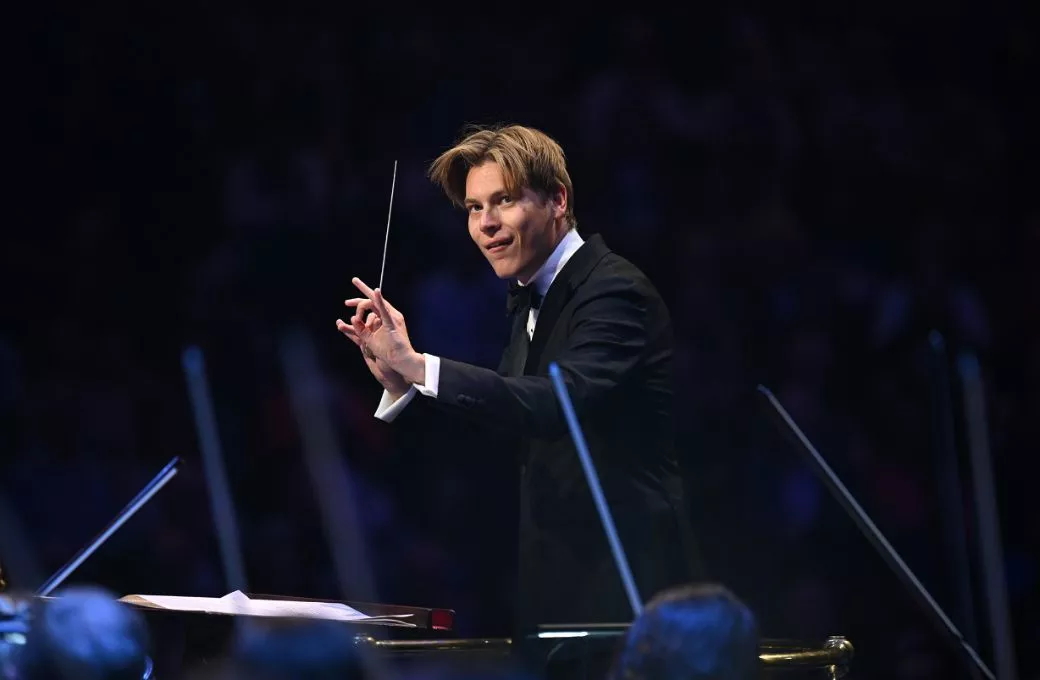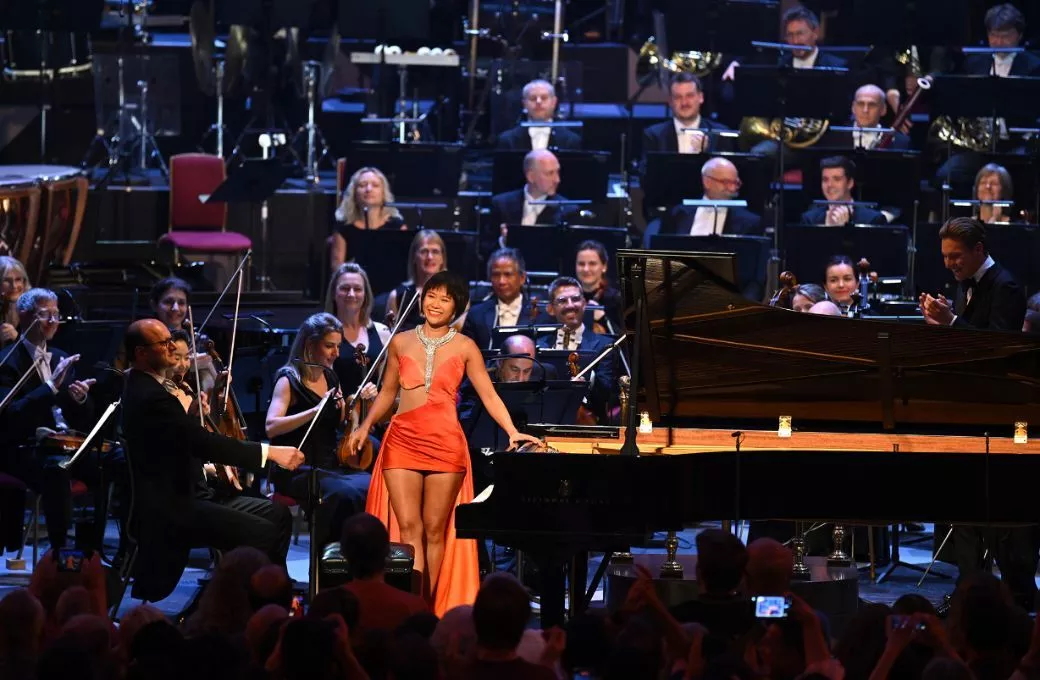 Klaus Mäkelä
Klaus Mäkelä
© BBC Proms | Chris Christodoulou
© BBC Proms | Chris Christodoulou
 Klaus Mäkelä
Klaus Mäkelä
A firecracker of a concert from the BBC Symphony Orchestra, conducted by Klaus Mäkelä, rewarded an enthusiastic audience in a full Royal Albert Hall. A UK premiere by Peruvian composer Jimmy Lopez Bellido, Perú Negro, opened the evening with a high energy exploration of rhythms and melodic material of Afro-Peruvian origin. The BBCSO and Mäkelä gave it their all and it came across as a fantastic showpiece, bursting with colour and rhythm. The other strength of the piece is its symphonic structure, the composer clearly benefitting from his seven years of study at the Sibelius Academy, which easily held the audience’s attention across its seventeen minute duration.

What a treat was next in store, with Yuja Wang showing us why she is such a star pianist, both in her irresistible stage presence and the unique quality of her performance. Rachmaninov’s Rhapsody on a Theme of Paganini, Op.43 is in many ways an ideal vehicle for her talents, with its mercurial mix of colours, moods and technical challenges. This was a mature and in some senses ironically self-effacing performance, Wang more interested in creating a captivating dialogue with the orchestra than in showcasing her own prowess. The BBCSO woodwind were brilliantly characterful and they interacted with the soloist with wit and intimacy. When the big tune arrives inverted in the 18th Variation, a delicate sense of romance was created, which proved to be very touching. The flourishes of the final variations were given the full virtuoso treatment as is fitting, rounding off a fresh and absorbing performance. Only two encores this time, but as expected from this queen of the encores, they both delighted: a schmaltzy Polka arranged by Rachmaninov and an arrangement by Art Tatum of Tea for Two.

The final energetic offering of the evening, Walton’s Belshazzar’s Feast, is a work purpose built for the cavernous spaces of the Royal Albert Hall, with the large orchestra supplemented by two brass bands, organ and chorus. In many ways it is a ramshackle piece, veering from sternness to wild jollity, then to triumphalism, yet it somehow always raises the roof, mainly due to its rousing climactic ending. However, it remains hard for conductors to do it full justice, as exemplified by Mäkelä’s interpretation here. The BBCSO and BBC Chorus were their excellent in whipping up the necessary gravitas and fizz. Thomas Hampson seemed somewhat distanced from the drama, sounding arch at times when he should just be stentorian. The overall impression of the performance was that its success on the night was down to the indomitable enthusiasm of the work rather than Mäkelä's shaping of it, which somehow just missed out on the atmosphere and cohesion that can make this brilliant showpiece really shine.